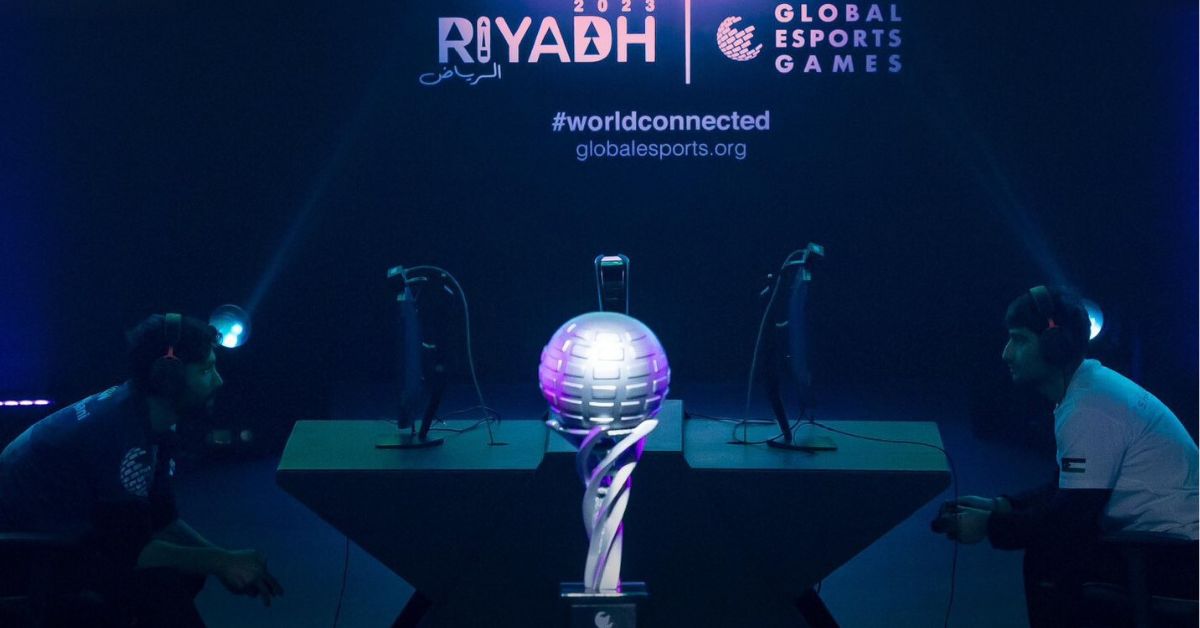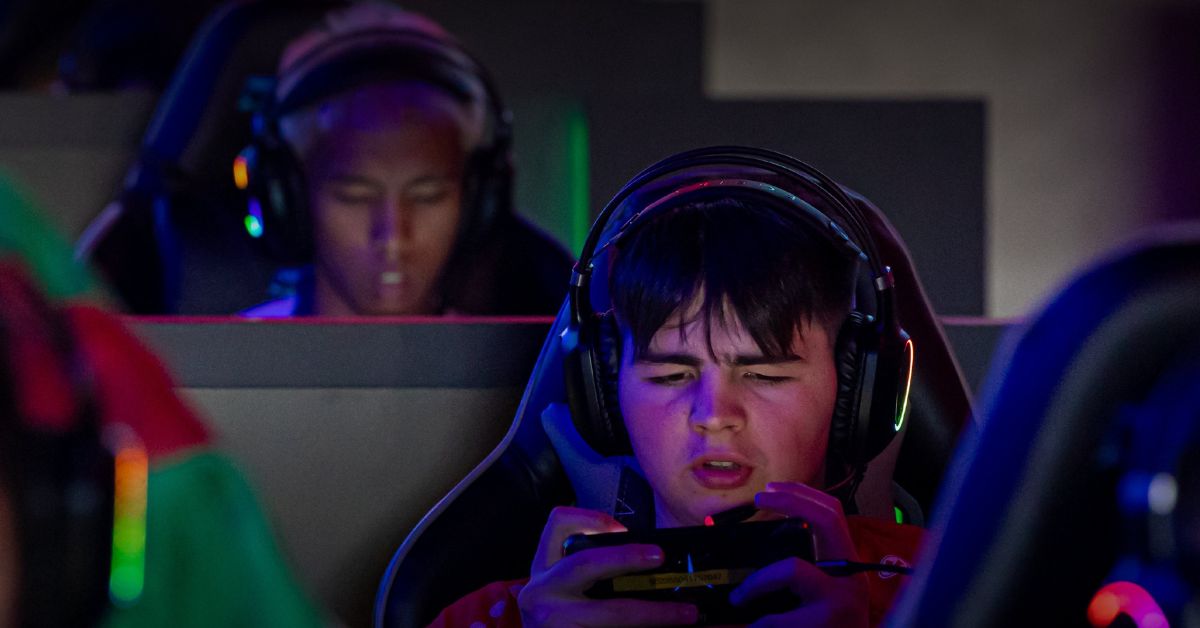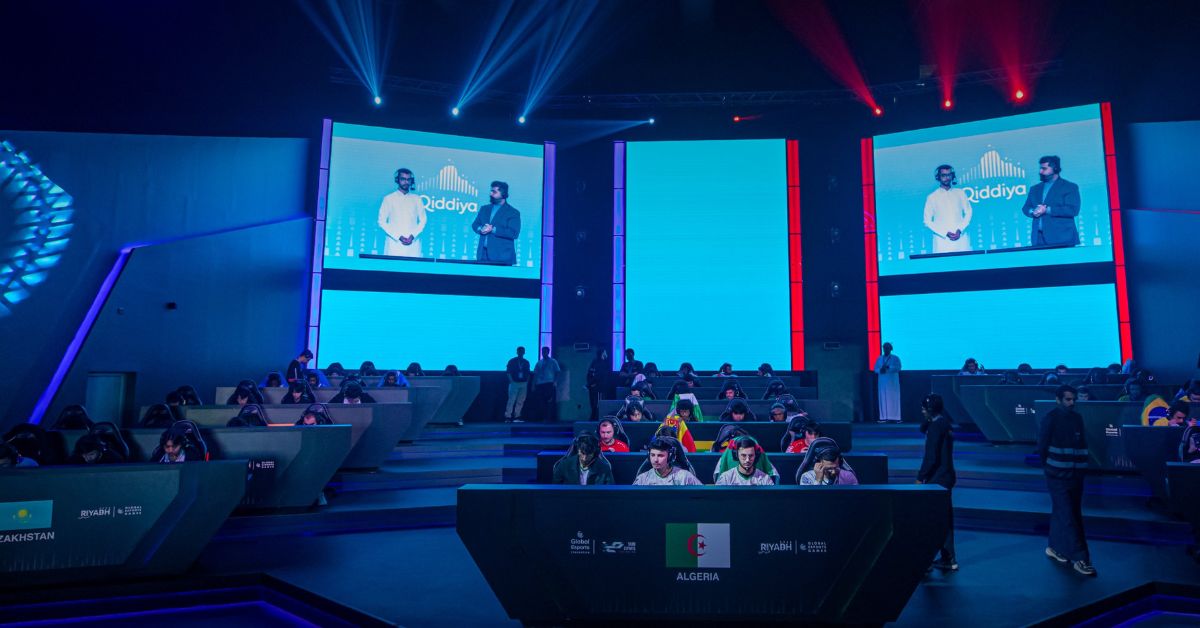RIYADH, SAUDI ARABIA — In the constantly evolving entertainment landscape, one industry has been on a meteoric rise, captivating audiences globally and reshaping how we perceive competitive gaming – Esports. This digital revolution, transitioning from a niche subculture to a mainstream sensation, is not just a pastime for gamers but a billion-dollar industry that has attracted fervent support from fans and investors alike.
The global and regional esports spectacle
As of 2023, the global esports market is projected to exceed $3 billion in revenue, with a fan base surpassing half a billion enthusiasts worldwide. Tournaments like The International, League of Legends World Championship, and Fortnite World Cup have become colossal events, drawing millions of viewers and offering staggering prize pools. The esports ecosystem now includes professional leagues, lucrative sponsorship deals, and a dedicated streaming culture, with platforms such as Twitch leading the charge.
The GCC region has not been immune to the esports fever and has experienced significant growth in recent years. The GCC esports market is expected to witness a compound annual growth rate (CAGR) of over 20 percent from 2023 to 2028, driven by increased internet penetration, technological advancements, and a burgeoning youth population passionate about gaming.
At A Glance Esports Industry on the Rise: The esports industry is rapidly growing, transitioning from niche to mainstream and becoming a billion-dollar global phenomenon. Global Esports Market Growth: Projected to exceed $3 billion in revenue by 2023 with over half a billion fans worldwide. Major Tournaments Drawing Attention: Events like The International, League of Legends World Championship, and Fortnite World Cup are attracting millions of viewers. GCC Region's Esports Expansion: Witnessing significant growth, with a projected CAGR of over 20% from 2023 to 2028. Saudi Arabia's Vision 2030 Impacting Esports: Spearheaded by the Crown Prince, it's driving the growth of the esports industry in the Kingdom. Saudi Government's Investment in Esports: Announcing a $1.3 billion investment in 2022 to develop local talent and infrastructure. NEOM World Cup 2024: A groundbreaking event that aims to place Saudi Arabia on the global esports map. Promoting Local Esports Talent: Investing in grassroots initiatives like esports academies and gaming clubs. Saudi Arabia’s Long-Term Esports Strategy: Aiming to become a global nexus for gaming by the end of the decade. Challenges in Cultural Perception and Gender Inclusivity: Addressing societal views and encouraging female participation in esports.
With its ambitious Vision 2030, Saudi Arabia has emerged as a leader in the regional esports landscape. The Kingdom fosters a thriving local gaming community and attracts global attention with major esports initiatives. The Saudi Esports Federation (SEF) plays a pivotal role in organizing events and supporting the growth of competitive gaming within the country.
In 2022, the Saudi government announced an investment of $1.3 billion in the esports sector, signaling a clear commitment to position the Kingdom as a hub for competitive gaming. This capital injection aims to build state-of-the-art esports arenas, develop local talent, and host international tournaments. The financial commitment underscores the recognition of esports as a catalyst for economic diversification and youth engagement.
The NEOM World Cup, scheduled for 2024, is set to be a groundbreaking esports event. With an impressive prize pool, this tournament is expected to attract top-tier players from around the globe. NEOM, the futuristic city under development, aims to become a global esports destination, solidifying Saudi Arabia’s position on the esports map.
Beyond the high-profile tournaments, Saudi Arabia is investing in grassroots initiatives to nurture local talent. Esports academies, gaming clubs, and community events are becoming integral parts of the Saudi gaming ecosystem, fostering the next generation of esports professionals.
A strategic decision
According to Mario Pérez, CEO of MENATech Entertainment, the Kingdom’s venture into esports is a strategic decision rooted in Vision 2030, a transformative plan spearheaded by the Crown Prince.
“The gaming and esports industry is a key component of Vision 2030, aimed at diversifying the economy, generating employment in new sectors, and introducing world-class entertainment options,” states Pérez.
The National Gaming and Esports Strategy, launched in 2022, solidifies Saudi Arabia’s commitment to becoming a global gaming nexus by the end of the decade.
Hosting the Esports World Cup is not just about competition; it represents a multifaceted opportunity for Saudi Arabia. Pérez emphasizes, “The event is poised to bolster the growth of the global esports industry, create new partnerships, and highlight the sector’s burgeoning economic potential.” The World Cup aims to position Saudi Arabia at the forefront of digital entertainment through technological innovation and cultural exchange, fostering economic benefits from increased tourism, infrastructure development, and international investment.
The gaming and esports industry is a key component of Vision 2030, aimed at diversifying the economy, generating employment in new sectors, and introducing world-class entertainment options.
Mario Pérez, CEO of MENATech Entertainment
In leveraging the rapid growth of the esports industry, Saudi Arabia aims to use the Esports World Cup as a strategic platform to establish itself as a global hub for competitive gaming.
Pérez told TRENDS: “The MENA region, already witnessing a surge in gaming with 377 million gamers and engagement rates that compete with those of Europe and America, offers fertile ground for such ambitions”.
He added, “Saudi Arabia’s goal to produce over 30 competitive games within local studios and to solidify its position as one of the top three nations in terms of professional esports player numbers reflects its commitment to capturing a significant share of this growth.”
Highlighting inclusivity and representation, Pérez points out, “Female gamers are a majority share of the community, and initiatives like Amazon UNIVERSITY Esports actively encourage women’s participation, recognizing and celebrating their talents.”
GGTech’s commitment to inclusivity across all demographics reflects the Kingdom’s dedication to creating an environment where the industry’s expansion aligns with a diverse global esports community.

Looking beyond the Esports World Cup, Pérez outlines Saudi Arabia’s long-term plans for the esports arena. “The Kingdom aims to serve as a geographical link between the East and West in the gaming industry,” he states.
With substantial investments in gaming, a youthful population, and advancements in AR and VR, Saudi Arabia envisions attracting global talent and playing a pivotal role in shaping the future of competitive gaming worldwide.
Pérez said, “Supporting this is the National Gaming and Esports Strategy 2030, which calls for establishing 250 gaming companies, creating 39,000 jobs, and enhancing the sector’s contribution to the GDP to 50 billion riyals by 2030. This will enable Saudi Arabia to build a robust infrastructure for gaming and esports.”
Navigating challenges
As Saudi Arabia eagerly positions itself as a burgeoning hub for esports, the journey has its share of challenges.
One of the primary challenges esports faces in Saudi Arabia is the cultural perception surrounding gaming. While the younger population increasingly embraces gaming as entertainment, traditional views may still view it skeptically. Breaking down these cultural barriers and demonstrating the positive aspects of esports, such as skill development, teamwork, and strategic thinking, becomes crucial.
Moreover, esports, like many other tech-related industries, grapples with gender inclusivity in Saudi Arabia. Despite a significant number of female gamers actively participating, there remains a need to challenge stereotypes and encourage more women to enter the competitive gaming scene. Initiatives promoting female participation, such as scholarships, tournaments, and mentorship programs, are vital for fostering a diverse esports community.

While the esports ecosystem is rapidly evolving, developing a robust infrastructure is a challenge that requires attention. Establishing state-of-the-art gaming facilities, ensuring high-speed internet access, and creating dedicated spaces for esports events are crucial. Investment in these infrastructural elements will enhance the local players’ gaming experience and attract international competition to Saudi Arabia.
Furthermore, aspiring esports professionals need access to quality education and training programs. Developing esports curricula in schools and universities, and fostering partnerships between educational institutions and gaming industry experts will be instrumental. By nurturing local talent through structured programs, Saudi Arabia can create a sustainable pipeline of skilled gamers, coaches, and esports professionals.
At the same time, a clear and supportive regulatory framework is essential for the growth of esports. Establishing guidelines for tournaments, player contracts, and licensing agreements will provide a sense of security for investors, sponsors, and participants. Saudi Arabia’s esports ecosystem can benefit significantly from transparent regulations that address the unique aspects of the industry while ensuring fair competition and protecting players’ rights.
As Saudi Arabia propels itself into the global esports spotlight, addressing these challenges head-on is paramount for sustained growth. The intersection of tradition and innovation requires a delicate balance, and the nation’s commitment to overcoming these obstacles will shape the future of esports in the Kingdom. As the industry evolves, strategic collaborations between government entities, private sectors, and esports enthusiasts will be pivotal in building a thriving and inclusive esports landscape in Saudi Arabia.








